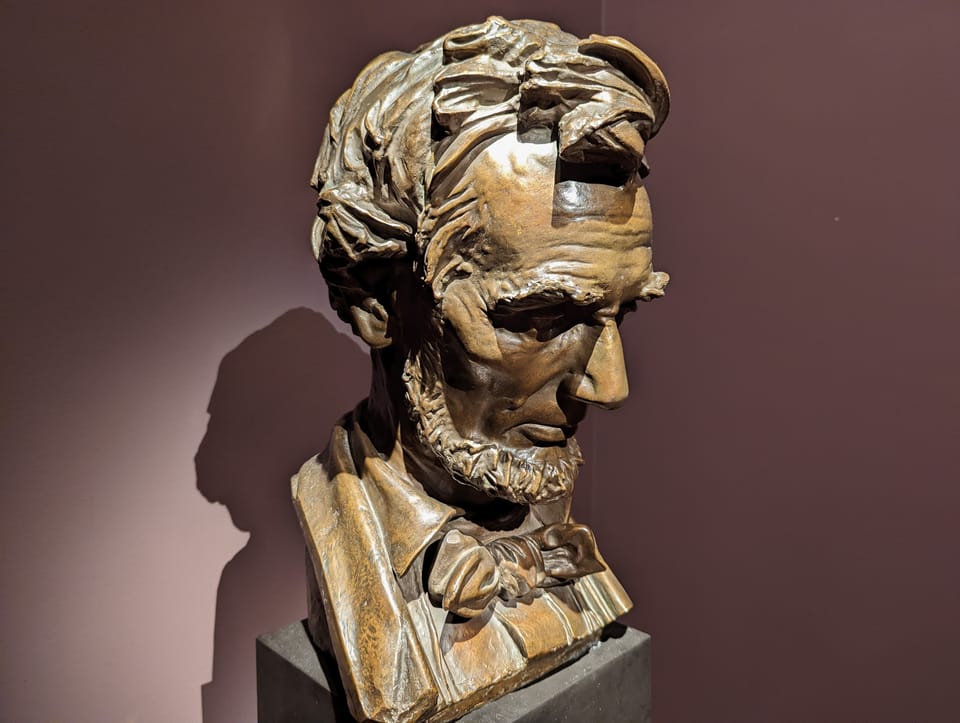Smart, Well-Meaning People Don’t Decide Elections

Greetings friends and clear thinkers!
I always assumed that it was the most committed voters and thoughtful citizens whose actions made the greatest difference. Our elections do turn on a relative handful of people’s actions, but it’s not you and me.
Once you see it, you’ll never look at elections the same. But you will understand what you see happening with much greater clarity.
Political strategists are obsessed with the “independent” voter
Something’s been bugging me for a while now: The idea that some meaningful pool of voters could swing either way.
Really? We’re supposed to believe that fellow citizens walk among us who, looking at the choices on offer, think, “Eh, I’m just not sure if there’s enough difference between the two. I can’t make up my mind.”
While such an “independent” voter might theoretically once have existed, the extreme polarization of our politics makes them highly unlikely today.
- It’s not like choosing between vanilla and chocolate ice cream, or even Coke and Pepsi.
- It’s more like a choice between plunging into a bath of liquid nitrogen or skydiving onto the surface of the sun.
Almost all voters are decided
When the choices are as opposite as those we now face, smart and well-meaning people know what they prefer.
They may not tell you what they think, perhaps because expressing a view is a sure path to making enemies. But they surely know what they prefer and thus how they’re going to vote.
Guess what? Even clueless, selfish people know what they prefer. They’re often even easier to predict because they’re reliably likely to vote in their self-interest and less likely to be concerned with consequences.
You don’t need an average IQ to form an opinion. You don’t even need subpar intelligence. If you can operate a motor vehicle or order a beer (extra points if you can do both in the same outing), you’ve formed an opinion about politics.
I’d estimate that at least 48% of citizens on either side (96% total) have firmly held views on politics. They are not going to suddenly switch their votes.
Political spending is real, James. What’s it for?
Good question! Who is the target for the hundreds of millions in campaign spending?
Most of that money is spent on advertising — TV and radio ads in local markets. Looking at the content of those ads makes clear which people the ads are directed to.
Consider this quote from the video:
There are some people who think we should be a country of chaos, of fear, of hate. But us? We choose something different. We choose freedom.
Again, really? A person is supposed to believe that their fellow citizens want a country of chaos, fear, and hate? That they don’t want freedom? You’d have to be gullible to the point of idiocy to genuinely believe this.
And yet, it is the mainstream party’s message from their Presidential candidate.
The rebuttal from team Trump is little better in taking the moral high ground.
Their attack ad is short and deeply unflattering. Here’s the summary:
Kamala Harris — Failed. Weak. DANGEROUSLY Liberal.
The people who swing elections are people swayed by such ads
They’re morons, in other words.
I don’t mean that term pejoratively, but rather literally, in the sense of people whose IQ is between 51 and 70. (Below that we find idiots, who while apparently abundant in our daily experience, are medically less likely to be voting.)
Only a moron would (a) have no prior opinion about the direction of their country and (b) make their decision based on a 30- or 60-second attack ad.
About two and a half percent of people are estimated to have IQs below 70. Taking the 260 million adults in the U.S., that leaves us with about six and a half million morons who are deciding the country’s future.
Of course, many of them do not vote at all, leading to the spectacle of a few tens of thousands of “swing” voters in key states determining the winner of national elections.
Leading to our Moronation.
This phenomenon explains a lot of what we see
- The candidates who appear to be fantastically weak and compromised to smart, honest people seem just fine to morons.
- Administrations pursuing demonstrably failed policies long past the point of reason, let alone decency — just fine for the morons.
- The rampant incompetence among our major bureaucracies, to say nothing of outright malfeasance, is no big deal to morons.
It’s not that we’re living in an idiocracy (yet) where the average person is ignorant and incompetent to dangerous degrees. I know you, dear reader, are smart, hardworking, and competent. Most of the people we know and see are the same.
But when policies are decided in tiny increments, it is the morons who can’t tell their left hand from their right hand who hold sway.
There is an alternate explanation
You’re going to like it even less, so I won’t dwell on it here. Alert readers will have realized that there are a couple of percentage points unaccounted for in my population math. Those are the smart, ill-meaning people, a small handful of whom have made it into the elite corridors of power.
These genius-level sociopaths don’t have your and my best interests at heart but only their own. How likely is it they have used their power to influence matters in ways we may not have noticed? How hard would it be for them to guide our incompetent leaders from behind the scenes?
I don’t know what’s worse: The idea that the morons are in charge, or the idea that they aren’t.
Be well.
For fun talking points that won’t get you thrown out of cocktail parties (but may prevent you from receiving further, unwanted invitations) read more of my stories.






Member discussion